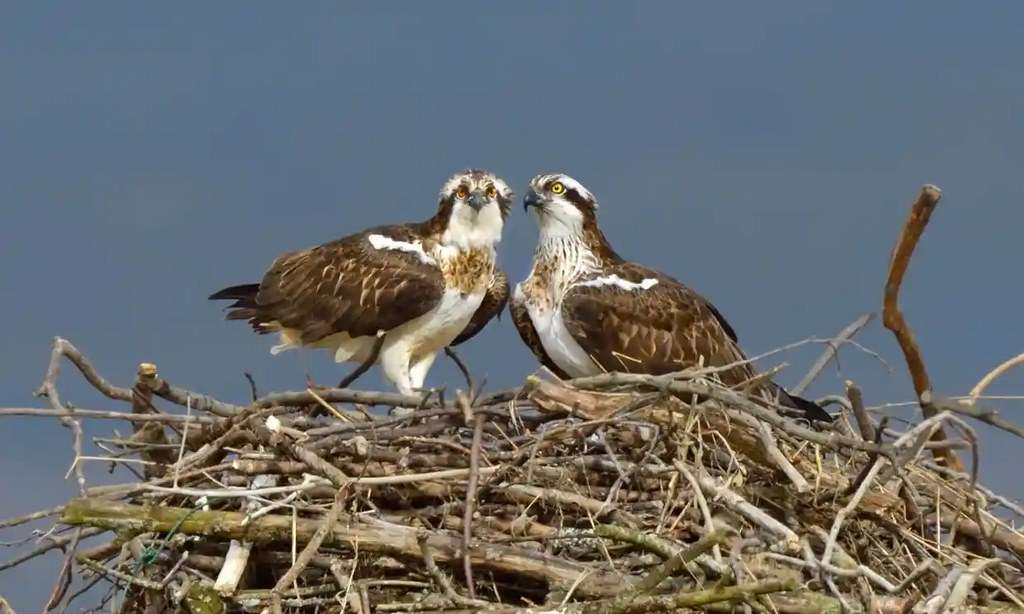Hiker Reaches Top of Summit and Has the Most Beautiful Encounter With Mountain Goats
A Montana hiker gets surprise of a lifetime, when he reached the summit of Bridger Range and a mountain goat walked up to him with its baby.

In North Yorkshire, England, young nesting ospreys recently-produced two chicks. In America this would not make news headlines, but for Yorkshire they were the first ospreys born in the county in over 200 years.
It's a sign of changing winds, as the osprey is recovering across several areas of England, having been hunted to extirpation on the Island by 1916.
Ospreys are now found breeding in Cumbria, Northumberland, and north and west Wales, and a trust is now trying to reintroduce them to East Anglia as well.
Thought to harm salmon and trout stocks, the birds were persecuted off Britain's shores between 1840 and 1916. Changing attitudes after the second World War saw legislation continuing to be introduced to protect raptors and other birds, until a pair of ospreys flew into Scotland from Scandinavia.
From then on the populations in Scotland, thanks to the Highlands' remoteness and rich fishing streams, grew and grew, rising to about 250 pairs by 2018.
This natural return was estimated to spread across England over a period of around 100 years, so various wildlife trusts, gripped by the modern English desire to return some of the island to its natural state, stepped in to accelerate the process.
Leicestershire & Rutland Wildlife Trust, managing the Rutland Osprey Project, brought the birds to England proper for the first time in almost 200 years, and from 64 Scottish osprey chicks released between 1996 and 2001, there are now 26 adults across at Rutland who have raised 200 chicks to independence.
They make their home in and around a park surrounding a reservoir called Rutland Water, where their ample appetite for fish can be satisfied.
"It's been a tremendous success," Joe Davis, Rutland Water reserves manager told the Guardian. "Birds from Rutland have spread out across England and Wales, or they've been translocated. From a human perspective, we're making good on what we destroyed."
Ospreys are migratory birds, and will travel as far as West Africa-often across the Sahara. Even the first year flyers will make the trip; a dangerous voyage, and a former manager of the Rutland Osprey Project wants to extend the group's collaborative efforts to try and secure better protection for their ospreys as they fly over the Mediterranean.
FLAP About On Social Media With This Awesome Species News…
Be the first to comment